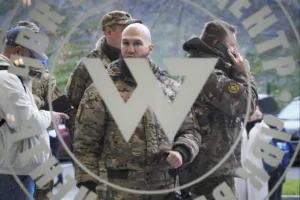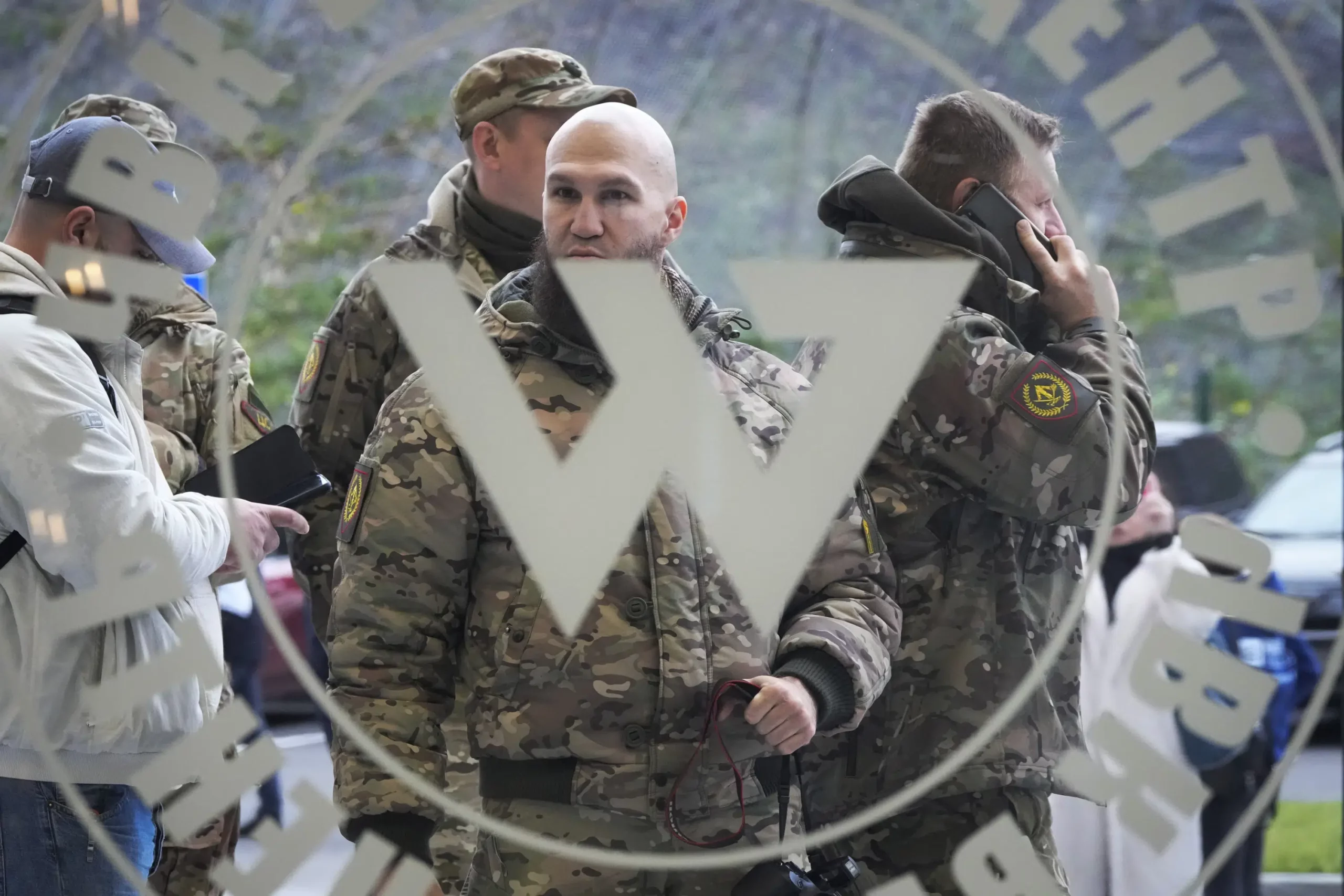
London and Washington, DC// – A major investigation by The Sentry reveals the operations of Russia’s Wagner Group in Mali as a multilayered catastrophe for the people and communities of Mali, for the junta that brought them in, for regional counterterrorism efforts, and for Russia’s brutal strategy for power and natural resource extraction in Africa.
The Sentry’s new investigative report, “Mercenary Meltdown: The Wagner Group’s Failure in Mali,” details a cascade of operational failures as the mercenary army has become increasingly reactive and violent—”allowing the terrorist groups they were contracted to neutralise gain more control and increase recruitment in Mali.” The report further reveals that the chaotic environment caused by Wagner is generating widening rifts and paranoia within the Malian military leadership.
Justyna Gudzowska, Executive Director of The Sentry, said: “As Moscow spreads its tentacles across the Sahel and rebrands its operations under the Africa Corps umbrella, it is critical to understand that its predecessor—the Wagner Group—was not the infallible fighting force and successful economic actor it pretended to be.
If anything, the Malian example illustrates that the group failed on both fronts, and this should be a warning to other African clients who are considering bringing in the Ministry of Defence-backed Africa Corps.”
Wagner’s involvement in Mali presents an altered trajectory for Russian interventions in the region and a contrast to its devastating and lucrative operations in the Central African Republic, detailed in The Sentry’s 2023 investigative report “Architects of Terror.”
Charles Cater, Director of Investigations at The Sentry, said: “The Wagner Group’s intervention in Mali has been a failure. Heavy-handed and poorly informed counter-terrorism operations have strengthened alliances among armed groups challenging the state, caused substantial battlefield losses for Wagner, and resulted in higher civilian casualties.
Wagner’s presence has also increased political fragmentation and tensions within the junta that hired them, while coming at an unsustainably high economic cost. Ultimately, Wagner’s deployment has not served the interests of the people of Mali, the military government, or even the mercenary group itself.”
Oliver Windridge, Senior Advisor for UK and EU at The Sentry, said: “So far, the European Union and its member states have been reacting with alarm to the specter of Russia’s encroachment into the Sahel and other African countries.
But the European Union may be operating on an outdated understanding of Wagner’s strength and tactics. As the cracks in Wagner’s operations have been revealed, alternative options may also be emerging for Brussels, London, and Washington to exert influence with Sahelian leaders toward better outcomes for their countries.”
Key report insights
- Despite the Wagner Group possessing a reputation for being battle-ready and claiming occasional public triumphs in Mali—and ultimately declaring that it had accomplished its mission—its strategy has been plagued by a series of failures.
- Wagner forces have been unable to take control of areas in the north and center of the country where armed terrorist and separatist groups are challenging the authority of the Malian state.
- Faced with challenges such as insufficient air support, a lack of trust, and a lack of reliable information from informants, the Wagner Group has become more reactive and violent.
- Wagner’s playbook in Mali has not only affected the civilian population; it has also helped perpetuate insecurity and has paved the way for the fragmentation of the Malian state. Wagner fighters have created chaos and fear within the Malian military hierarchy, forcing the Forces Armées Maliennes (Malian Armed Forces, or FAMA) to remain silent in cases of civilian abuse. In addition, the lack of order and communication within the chain of command has led to the progressive deterioration of the FAMA’s ranks.
- At the outset of its Malian venture, Wagner was seeking to secure mining concessions that would likely replicate the group’s self-funding arrangements in other countries. However, the Malian junta appears unwilling to allow Wagner to control the mining sector, and Wagner’s forays into that sector have thus far been limited.
- Abuses against the Malian armed forces by Wagner troops have increased, as have complaints from Malian soldiers.
- Within the Malian military junta itself, the varying degrees of partnership with Russian actors are contributing to a shift in power relations in Bamako, as Malian leaders regard one another with suspicion.
Key recommendations in the report
- The Office of the Prosecutor at the International Criminal Court (ICC) should open an investigation into war crimes perpetrated by Wagner troops in Mali and prosecute those responsible for human rights abuses. Alternatively, the United Nations Security Council should refer Wagner abuses in Mali to the Office of the Prosecutor at the ICC.
- The government of Mali should take steps toward criminal accountability and reparations for the victims of massacres such as Moura, as well as for the abuses against and displacement of civilian populations following attacks by the Wagner Group in the north and west of the country.
- International mining companies operating in Mali and foreign refineries processing Malian gold should conduct comprehensive audits of their operations to ensure that they are not conducting business with sanctioned Wagner Group entities or individuals, such as Ivan Maslov.
- The Algerian government should facilitate renewed negotiations on a peace agreement between Bamako and the northern rebel groups. As the political and security landscape has changed since the 2015 agreement, which was facilitated by Algeria, including as a result of the withdrawal of the UN peacekeeping operation MINUSMA, new terms will need to be agreed.
- The EU, the US, the UK, Canada, and Australia should investigate and, if appropriate, designate for sanctions the network of individuals and entities in Sadio Camara’s inner circle who enable, support, or benefit from Wagner’s presence in the country, as well as those involved in corruption and human rights abuses. They should coordinate sanctions to increase their impact.
Read the full report: https://thesentry.org/reports/mercenary-meltdown-wagner-failure-mali/


